
North Florida Holsteins Sets Example of 180 Degree Turn Toward Healthy and Profitable
North Florida Holsteins is the single largest dairy in Florida and home to roughly 4800 cows and 4400 heifers. The balance are bulls and steers. The current acreage is about 2,400 acres. Don outlines a very clear mission statement for their dairy genetics. “We believe that the function of a seed stock producer is to produce the animal that is the most profitable for the commercial dairyman.” He doesn’t mince words in referring to the breed association. “Don feels that the current philosophy of the Holstein Association is very contrary to this.” He gives three main targets that he seeks out as profitable. “High production with health traits and feed efficiency are our by words. The present classification and type evaluation system are 180 degrees away from cattle that pay the bills. Bigger, taller, sharper doesn’t cut it. The latest correlation of final type score with stature is .77. Worse yet, the correlation of udder composite with stature is .57. That means if you breed 100% for udder composite, you will increase stature at more than half the rate that you would if you bred for stature alone.” There is only one conclusion for this dairy farmer. “The current 88 and 89 point 2 year olds are dysfunctional for the guy making milk for a living.” (Read more: The Perfect Holstein Cow)
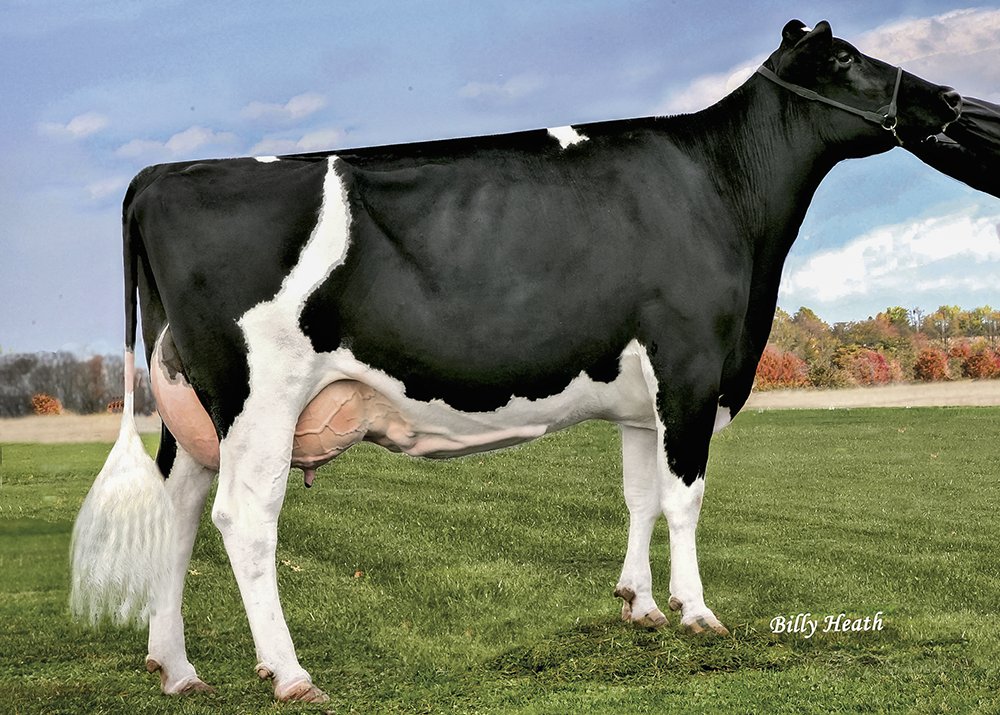
NO-FLA Oman Heidi 20611 VG-87
2-01 305D 25760M 861F 739P
3-06 275D 25260M 101F 806P
Focused on Generations of High Health Produces Results
With such extensive experience, it is exciting to have Don describe an outstanding example of North Florida breeding. “The individual cow that has had the largest effect on our breeding is NO-FLA Oman Heidi 20611. Heidi was the result of us stacking high health sires up for generations. We have not used a negative DPR bull for decades. One of her sons is either the highest or second highest DPR available in AI. He also has a 9.1 PL. An added bonus is he is a 4 on both sire and daughter calving ease.” Thus it isn’t a surprise that nearly every major bull stud has one or more of her active sons and Don expands on Heidi’s impact. “Her daughters are among our best individuals and indications are they are transmitters. Her dam is an Excellent Mtoto with over 200,000 milk and the next dam an EX Rudolph. This is a cow family that came down with us from NY. A major portion of the herd traces to this family.”
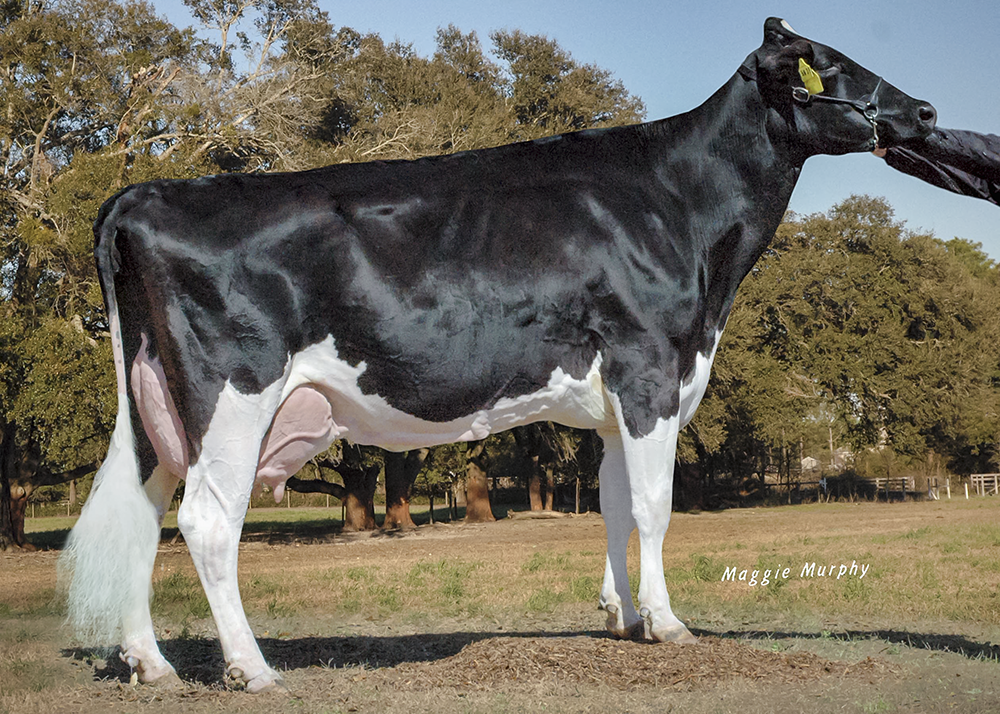
NO-FLA DA RUDO SUE 15039 EX-94
Lifetime 259,313 8069F 7374P
Dam – EX-93 Blackstar
Major emphasis has been placed on established cow families.
Early North Florida breeding decisions were very specific. “These were largely centered around tough, rugged, long lived, high producing, consistent individuals. Commonly whole herds were bought to get a cow family. Don prefaces this list with the comment, “These kind of folks are way under recognized! Some of our best cow families came from Joe Dell in New York, Dick Wheeler in Pennsylvania, Brian Young, CV Vincent in Tennessee, Ted Olsen in Kentucky, David Greene from Tennessee, DeWitt Head from New York and the Newberry family from Georgia. We then used the best production and health traits sires that were outcrosses to them and balanced their weakest traits.”
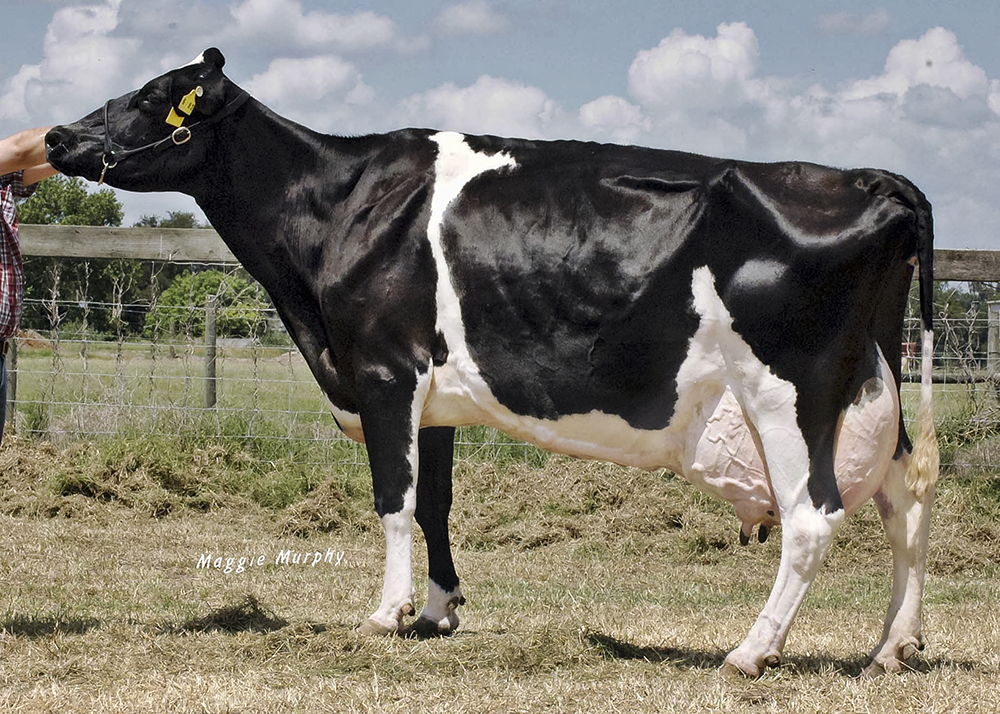
By-My Rudolph Salley
“Genomics has added an enormous opportunity to breeding Holsteins.”
So says this early adaptor of many leading edge technologies. “When I was young, a common statement was you have a maximum of about 10 generations of dairy cattle breeding to prove yourself as a breeder. That was because a bull or cow was about 5 or 6 years old before you knew whether he or she met the standards you were breeding for. Now that I am in my seventies, with a new generation every year, we can do 10 generations in a decade. With a considerable number of examples in stock to prove it, I place a lot of confidence in production and health trait genomics. “
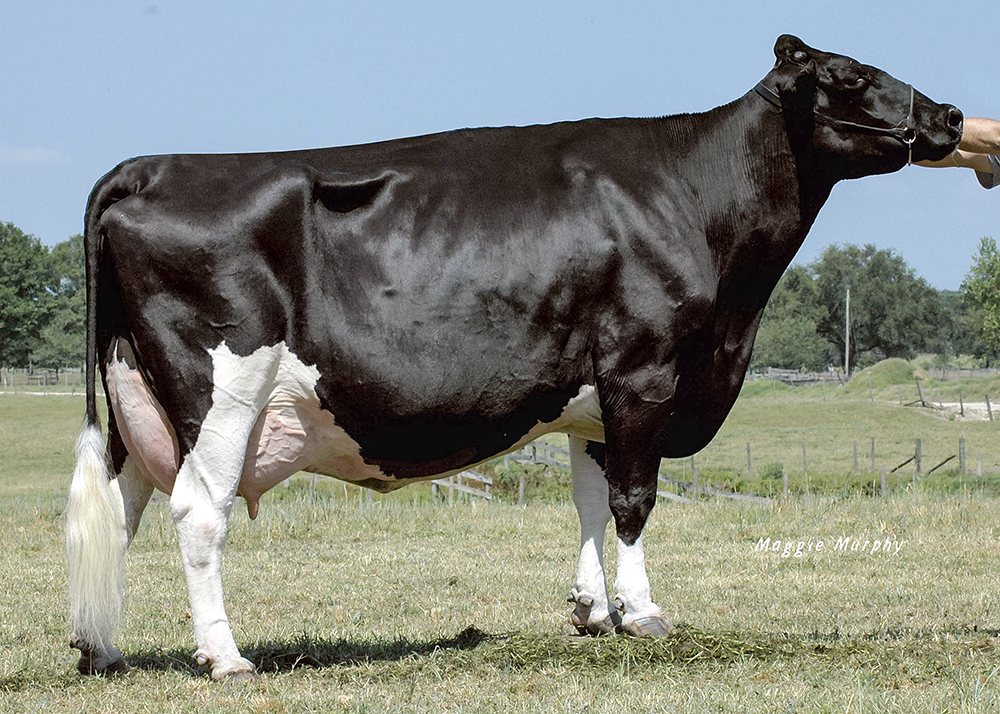
Woodwind Juror Gutele
“I place no confidence in type genomics.”
Once again Don holds a firm position supported by numbers. “With the current correlation of .59 between udder composite and stature, it is not unusual to see the same udder scored good on a short or medium sized heifer that is very good on a tall heifer. No study including the ones done by Holstein show any real correlation of foot and leg composite with foot health or herd life. Bulls with + 3 and + 4 type proofs have daughters that are too big and too sharp for commercial dairymen. For this reason gTPI or TPI are essentially ignored in bull or female selection. Net Merit $ has some value.”
Jerseys Show and Work. Holsteins are the Princess Breed.
My good friend in New Mexico, Buster Goff, and his son milk 5,000 Holsteins on one farm and 5,000 Jerseys on another. Buster loves to show. He shows his Jerseys because when the shows are over, he can take his Jerseys home and turn them in with the other cows. If he were to show winning Holsteins, he would have to have a special barn because show type Holsteins can’t survive commercial conditions.
WAKEUP HOLSTEIN AMERICA!
Don feels strongly about the urgency of the issues facing the Holstein dairy industry. “Today in the US, 3 % of the dairy farms make half the milk. A decade ago Jerseys were 2% of the cow population. Today 15% to 17% of the population is Jersey and Jersey crosses. There are about 7 herds over 30,000 cows. These are either all Jersey or switching to Jersey. The difference between 1% too much milk in the market and 1% too little milk in the market is $4 per cwt. The difference between 15% too many Holstein heifers in the market and 15% too few is $500 to $1,000 per head. The people that used to buy surplus Holstein heifers in volume are switching breeds.” This is a crisis which Bennink sums up this way, “ The US Holstein Association badly needs a wakeup call. Our Holstein cow and our Holstein breeders are the losers if we continue to ignore the obvious long term stable customer.”
Choose Lifetime Achievement Over Star Chasing
With almost his entire lifetime devoted to dairy cattle, Bennink accepts the changes as well as the challenges. “Early on the grade dairyman looked to the purebred breeder as a source of genetic improvement. Today the commercial dairyman looks at a purebred breeder as someone chasing stars. The incomes of a substantial number of commercial dairymen are on par with CEO’s of substantial corporations and that of professional sports stars. Rather than tap this resource, the typical purebred breeder is trying to market to someone wanting a winning show cow or a fly by night individual with a dream of owning some fancy cows.” Certainly never one to be defined as “typical”, Don outlines the parameters that he uses.
“We are using the highest production and health sires we can find.
All AI matings have inbreeding coefficients run on them. About two thirds of our heifers and a substantial portion of our cows are pregnant to IVF embryos from the top 3% of our females. We breed the type of cow that is most profitable for us. The market is ignored. If folks like what we are doing and want to be part of it, they are welcome to see if there is a fit. Our milk market doesn’t pay for protein but we emphasize it because it is in our future.”
Making Milk for a Living
Don urges all dairy breeders to weigh decisions carefully. “Even though bigger, taller, sharper means shorter life, lower feed efficiency and fewer bottom line dollars, the show ring and the classifier prevail. What we have found to be the best index for the person making milk for a living is one put out by John Metzger. It prioritizes factors according to their effect on bottom line.
With sixty years of experience Don recommends anyone starting out not to use the established dairy farm as his example. “The first test is to be sure that you have the right stuff in the form of integrity, knowledge, ambition, reliability and performance. If you have these, opportunities will come because you are a commodity in short supply.” After that Don Bennink, progressive dairy breeder, has five important principles that he feels are key to dairy success.
- Pay your bills and keep your word.
- You can rent a lot better setup than you can own when funds are low.
- Don’t be too proud to milk three titters or whatever to get your start.
- Don’t try it if your family is not behind it and willing to participate.
- Seven day weeks and long days will be in your future for some time.
The Best of Mentors. A Network of Friends.
As a responsible mentor himself, Donn Bennink looks to a special friend who excelled in this role. “Undoubtedly the major influence on me was Pete Blodgett. The last 15 years of his life, he would come by and stay with us 4 or 5 days about 8 to 10 times a year. Much time was spent on how to create the kind of beast that would best pay the bills for a dirt farmer like myself. Digging out early health trait data any way we could was actively pursued.” Whether it’s staff, customers, friends or peers, Don puts people first on every major list at North Florida Holsteins. “Our greatest accomplishment in dairy farming and Holstein breeding is the network of friends that we have established around the country and around the world. They inspire us and add satisfaction to the challenges of a 24/7 lifestyle. Helping them achieve as they have helped us achieve is the reward.
The Bullvine Bottom Line
When it comes to the Bottom Line, as every sustainable business should, Don has a clear formula for success. “The quality of the team is a major contributor. We have tools available to fix the problem within our breed. The future is to be had by those that please the commercial producer and the consumer.” Wise words from a recognized advocate, educator and leader. No doubt there will be continuing achievements for North Florida Holsteins!
Get original “Bullvine” content sent straight to your email inbox for free.

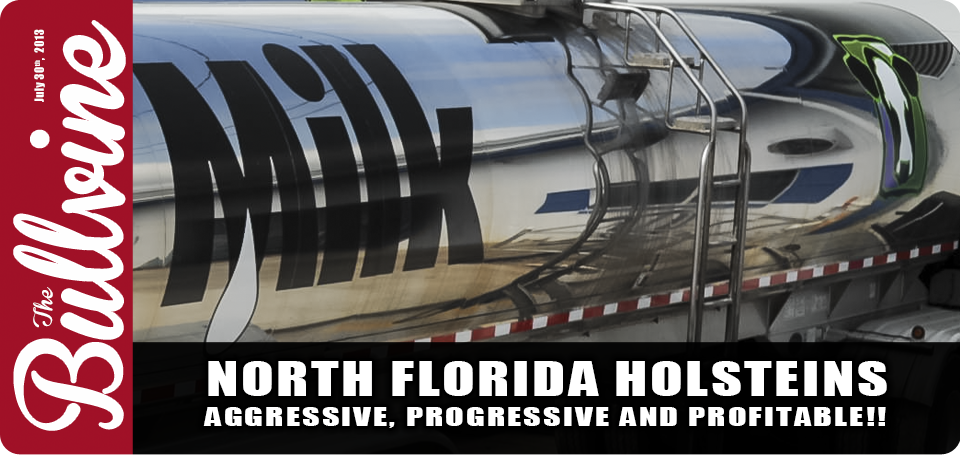






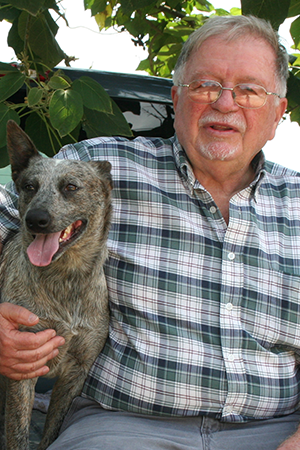










I love the way Don thinks. I have never met him, but after reading this article he is truly my idol!